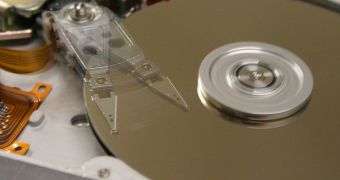Modern computers consume a lot of energy, but they also waste a huge portion of it as heat. But devices based on reversible logic could reduce that waste to zero, say investigators. All that is needed is the brains and money to develop such a machine.
As the world's resources are diminishing, energy demand and the global population are increasing, and this is visible in the field electronics as well. Experts are becoming more and more interested in developing technologies that would reduce energy waste by as much as possible.
At the same time, they need to keep in view the fact that microprocessors, chips, hard drives, and other components need to be miniaturized even further, as low as the laws of physics allow.
One of the main problems with doing so today is heat, energy that is wasted entirely, and never recovered again. Eliminating this type of leak could help with saving vast amounts of electricity, considering the large number of computers around the world alone.
But in order to save big in electricity manufacturing, we first must innovate the world at a nanoscale, where current electronic components are manufactured. Scientists say that an entire overhaul of the way computers today operate is needed in order to improve efficiency.
One possibility is reversible computing, an approach that would allow a future machine to conduct calculations in steps that are time reversible.
“So if a logic gate changes an input X into a output Y, then there is an inverse operation which reverses this step. Crucially, these must be one-to one mappings, meaning that a given input produces a single unique output,” experts at Technology Review say.
One of the things that make conventional logic gates in standard computers so inefficient is that they use a lot of energy to produce several outputs from the same gate. However, only one option is selected for the entire array that was returned.
This means that the energy which went into creating all the other outputs is simply lost. These solutions are called garbage states, and minimizing their number is a promising option for reducing overall consumption.
“Minimization of the garbage outputs is one of the major goals in reversible logic design and synthesis,” explain University of South Florida (USF) scientists Himanshu Thapliyal and Nagarajan Ranganathan, who specialize in reversible computing.
The main advantage of using this type of logic gate is that it has the potential to dissipate no heat, therefore saving extra electricity. But developing such a computer is not easy. It is expected that one will become available within the next few years.

 14 DAY TRIAL //
14 DAY TRIAL //